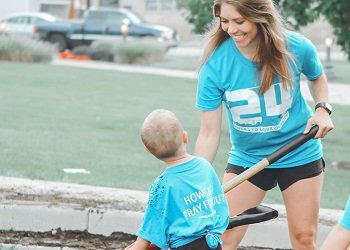
Sometimes making the connections between what is learned from non-medical related experiences and applying this knowledge to being a physician isn’t easy. But if you look at the AAMC core competencies, you’ll see that medical schools look for evidence of pre-professional competencies such as interpersonal skills, cultural competence, teamwork, oral communications, ethical responsibility, dependability, and reliability. For college students, there are countless opportunities to develop skills in these competency areas outside the clinical setting. Here are a few examples:
Volunteerism: Student Organizations
Student organizations (orgs) can introduce you to the campus community while providing the chance to get involved in a cause you care about. The key is to find an org that aligns with your personal values and interests. Whether it’s joining a discipline-specific org that helps promote outreach in STEAM to local schools, a community-focused org that hosts blood drives and supports needed services in the community, or an org that focuses on building and enhancing awareness of diversity and inclusion, there are opportunities to develop your teamwork, communication, cultural competence, and reliability competencies. Even non-service-oriented orgs, such as dance teams or theater clubs, can help you build these competency areas while also enabling you to explore your creative aspirations in a free and welcoming space. Keep in mind that schools want to see quality over quantity, so rather than volunteering for a one-day event, consider taking on a more substantial role. Look for activities that require regular attendance, participation, and commitment to the org’s mission and provide opportunities to assume a leadership position.
Paid Work: On- or Off-Campus
Many students work while in school. Beyond the importance of learning how to manage your time, working requires you to strengthen your reliability, dependability, professionalism, communication skills, integrity, and commitment to customer service. The ability to work in a team setting is often required of medical students, and it’s even more relevant once you become a physician. Whether working in the library, the athletic center, the dean’s office, or in the student union, employment develops and polishes numerous skills desired by medical schools.
Teaching and Mentoring: Volunteer or Paid Service
Serving as a residential assistant (RA) or a course teaching assistant/peer tutor can be a demanding but incredibly rewarding experience. RAs in the residence halls, who are on-call throughout the semester, wear many hats. They can be mentors, tutors, personal life coaches, and crisis managers. Often serving as a liaison between the students and institutional leadership, being an RA requires maturity, dependability, resilience, composure in emergency situations, and solid interpersonal skills.
If you are interested in teaching, academic development programs at colleges need smart, dedicated, mature, reliable, and motivated students with good communication and listening skills. Helping one’s peers as a tutor or supplemental course instructor combines strength in content knowledge with excellence in communication skills, adaptability, creativity, cultural awareness, and resilience.
These are just a few non-clinical experiences that demonstrate competencies that enhance readiness for medical school. Most of these experiences are long-term commitments, often spanning multiple semesters, which help prepare applicants for the long-term, demanding nature of medical training and practice. For more information about how other students have demonstrated core competencies on their medical school applications, visit www.aamc.org/competencies.